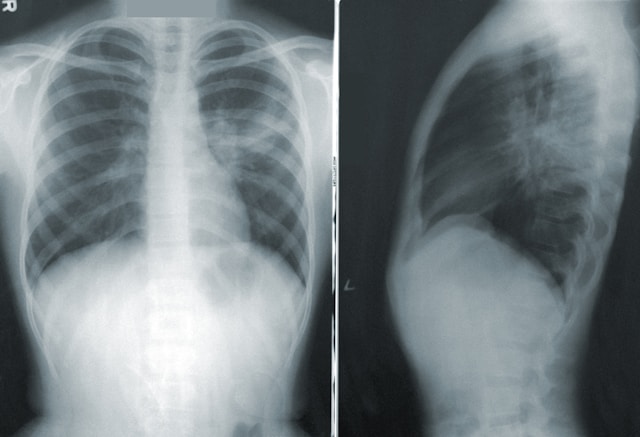Scientists discover unique macrophages crucial for lung recovery post-viral infections
In a groundbreaking study, researchers have identified a previously unknown population of macrophages that play a pivotal role in repairing lung tissue following respiratory viral infections. This discovery, made by the team at the GIGA Institute, has the potential to transform our understanding of the immune response and pave the way for innovative regenerative therapies.
Respiratory viruses, though often causing only mild symptoms, can lead to severe health issues, as starkly highlighted by the COVID-19 pandemic. These infections can inflict significant damage on the lungs, particularly the alveoli, which are critical for gas exchange. Inefficient repair of these structures can result in acute respiratory distress syndrome (ARDS) or long-term reductions in lung function, leading to chronic fatigue and diminished exercise capacity.
Embed from Getty ImagesWhile the role of macrophages during the acute phase of respiratory infections is well-documented, their function during the recovery phase has remained less understood. The GIGA Institute’s recent study uncovers that a distinct group of macrophages, marked by unique characteristics and transiently recruited during the early recovery phase, are instrumental in regenerating the pulmonary alveoli.
The research, spearheaded by Dr. Coraline Radermecker and Prof. Thomas Marichal, utilized advanced technologies such as flow cytometry, fluorescence microscopy, and single-cell RNA sequencing. Dr. Cecilia Ruscitti conducted the study, contributing significantly to the findings.
“Our findings reveal a novel mechanism for alveolar repair involving these atypical macrophages. We have identified their characteristics, origin, and role in regenerating alveolar cells, specifically targeting type 2 alveolar epithelial cells,” explained Dr. Radermecker.
Dr. Marichal added, “This study challenges the notion that post-infection macrophages are solely pathogenic. Enhancing or stimulating these macrophages could lead to new treatments for improving lung regeneration and managing complications from severe respiratory infections.”
This discovery offers promising new avenues for treating respiratory diseases, likening the repair process to a garden being meticulously restored after a storm by specialized gardeners. By harnessing the potential of these newly discovered macrophages, medical science could significantly advance the treatment of lung damage caused by respiratory viruses, ensuring better outcomes for patients suffering from conditions like ARDS and long-term lung function impairments.
Analysis
Political:
The discovery of these specialized macrophages could have substantial implications for public health policy. Governments might increase funding for research into immune responses and regenerative medicine, recognizing the potential to enhance treatment protocols for respiratory illnesses. Politicians could leverage this breakthrough to advocate for stronger healthcare systems capable of managing and recovering from pandemics like COVID-19 more effectively.
Social:
On a societal level, the discovery underscores the importance of advancing medical research and its direct impact on improving health outcomes. It highlights the need for public awareness and education about the immune system’s role in recovery from infections. As this research progresses, it could lead to increased public trust in scientific advancements and greater support for funding biomedical research.
Racial:
The implications of this research could be particularly significant for racial minorities who have historically been disproportionately affected by severe respiratory infections. By developing therapies that enhance lung repair, we can address healthcare disparities and improve outcomes for these communities. This discovery could lead to more equitable healthcare solutions and a reduction in the long-term impacts of respiratory illnesses among vulnerable populations.
Gender:
Respiratory diseases often affect men and women differently, with varying degrees of severity and recovery patterns. Understanding the role of these newly discovered macrophages in lung repair could help tailor treatments that consider gender-specific responses to infections. This could lead to more personalized and effective medical interventions for both men and women, addressing their unique health needs.
Economical:
From an economic perspective, this discovery holds the promise of reducing healthcare costs associated with long-term respiratory complications. By improving lung repair mechanisms, patients could recover more quickly and completely, reducing the burden on healthcare systems and improving productivity. The potential for new regenerative therapies also opens up markets for biotechnological innovations, driving economic growth in the medical research sector.
